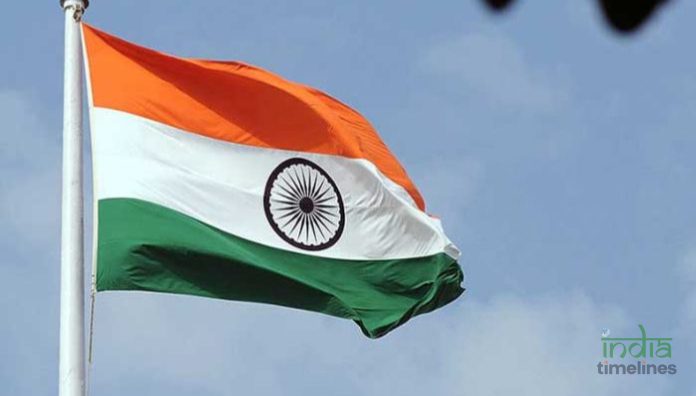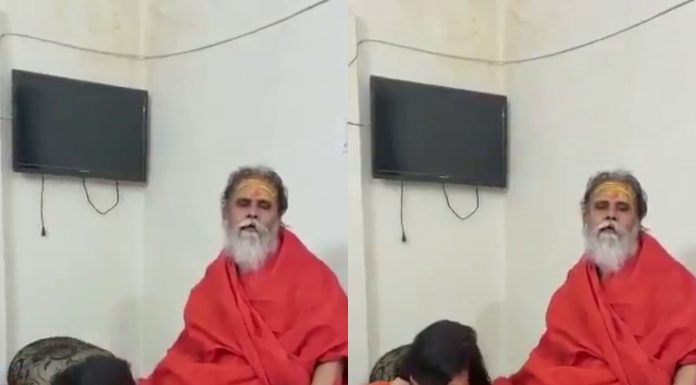
In a touching ceremony held in Jaipur, five Hindu migrants from Pakistan were granted Indian citizenship, marking a significant milestone in their lives. The event not only represents legal recognition but also embodies hope and a sense of belonging for these individuals who have eagerly awaited this momentous occasion.
The granting of Indian citizenship to these migrants reflects a broader narrative of inclusivity and compassion, highlighting India’s commitment to providing refuge and support to persecuted communities from neighboring countries. It underscores the nation’s ethos of pluralism and tolerance, where individuals of diverse backgrounds are welcomed and embraced as integral members of society.
The ceremony in Jaipur served as a poignant reminder of the challenges faced by refugees and migrants, as well as the resilience and determination they exhibit in pursuit of a better life. It also celebrates the bonds of solidarity and empathy that unite communities in times of hardship, reaffirming the importance of compassion and assistance in uplifting the lives of those in need.
As these five individuals embark on their journey as Indian citizens, they carry with them not only legal documentation but also a renewed sense of hope and optimism for the future. Their integration into Indian society serves as a testament to the nation’s rich tapestry of cultural diversity and its capacity to embrace and empower individuals from all walks of life.
Background
The migration of Hindus from Pakistan to India has been a persistent trend influenced by numerous socio-political factors. Discrimination and persecution against Hindus in Pakistan have been significant drivers behind this movement. They often face challenges in accessing basic rights, such as education, employment, and religious freedom, leading them to seek refuge in India.
The history of Hindu migration from Pakistan to India dates back to the partition of British India in 1947, which resulted in the creation of Pakistan as a separate Muslim-majority state. The partition led to widespread violence and displacement, with millions of Hindus, Sikhs, and Muslims forced to leave their homes and migrate to the newly formed countries based on religious lines.
Over the decades, the plight of Hindus in Pakistan has continued, with reports of targeted violence, forced conversions, and discrimination. In recent years, there have been incidents of abduction, rape, and forced marriages of Hindu girls, further exacerbating the sense of insecurity among the community.
The migration from Pakistan to India is not only driven by push factors such as persecution but also by pull factors such as the desire for better economic opportunities, social integration, and the prospect of living in a country where they can freely practice their religion without fear of persecution.
However, the migration process is often fraught with challenges. Many Hindu migrants face difficulties in obtaining Indian citizenship and integrating into Indian society. They often struggle to find suitable housing, employment, and access to education and healthcare facilities.
The issue of Hindu migration from Pakistan to India remains a complex and sensitive issue, with implications for both countries’ relations and the welfare of the affected communities. Efforts to address the root causes of persecution and discrimination against Hindus in Pakistan, as well as to facilitate the smooth integration of migrants into Indian society, are essential for ensuring their safety and well-being.
The Ceremony in Jaipur
The ceremony, presided over by the Additional District Collector (South), Abu Sufiyan Chauhan, was a moment of joy and celebration for the migrants and their families. Sanjay Kumar, Sunita, Harsha, Nisha, and Rajesh Kumar were among the recipients of the Indian citizenship certificates. Sanjay Kumar, expressing his gratitude, remarked, “The long wait of many years has ended today. We can now say with pride that we are Indians.”
The Journey of Migrants
The journey of these migrants from Pakistan to India has been fraught with challenges and hardships. Leaving behind their homeland, they embarked on a quest for a better future, facing uncertainty and risks along the way.
Significance of Indian Citizenship
Indian citizenship holds immense significance for migrants as it offers a gateway to a multitude of opportunities and rights within the country. Beyond just legal status, it provides a sense of security and belonging, enabling individuals to fully participate in the social, economic, and political fabric of India.
Education is one of the primary benefits, as Indian citizens have access to a wide range of educational institutions, including government-funded schools and universities. This access helps in acquiring knowledge and skills necessary for personal and professional development.
Employment opportunities also expand significantly for Indian citizens. They can work in both public and private sectors without any restrictions, allowing them to pursue their chosen careers and contribute to the nation’s workforce.
Healthcare is another crucial aspect. Indian citizens are entitled to healthcare services provided by government hospitals and clinics at subsidized rates, ensuring access to essential medical care when needed.
Furthermore, citizenship grants individuals the right to participate in democratic processes such as voting and standing for public office. This allows them to have a voice in shaping the future of the country and actively engage in decision-making processes at various levels of governance.
Beyond these practical benefits, Indian citizenship fosters a sense of belonging and identity. It enables migrants to fully integrate into Indian society, fostering social cohesion and unity among diverse communities.
In essence, Indian citizenship not only provides legal recognition but also unlocks a plethora of opportunities and rights that are essential for individuals to thrive and contribute to the progress and prosperity of the nation.
Government Initiatives
The district administration’s efficient handling and swift processing of citizenship applications underscore the government’s steadfast commitment to offering a sanctuary for persecuted minorities from neighboring nations. These initiatives not only demonstrate India’s dedication to upholding principles of inclusivity and compassion but also serve as a beacon of hope for those fleeing persecution and seeking refuge and asylum within its borders.
By expediting the citizenship application process, the government is not only fulfilling its legal obligations but also affirming its moral responsibility to extend support and protection to vulnerable populations. This proactive approach not only reflects the spirit of empathy ingrained in India’s cultural fabric but also aligns with its broader humanitarian values on the global stage.
Moreover, these initiatives not only facilitate the integration of newcomers into Indian society but also contribute to the enrichment of its diverse tapestry. By embracing individuals from varied backgrounds and offering them a chance to rebuild their lives, India reinforces its position as a beacon of tolerance and acceptance in an increasingly interconnected world.
Overall, the government’s proactive measures in processing citizenship applications not only embody its commitment to humanitarian principles but also showcase its ability to translate these ideals into concrete actions that positively impact the lives of those in need.
Community Response
The local community in Jaipur welcomed the migrants with open arms, extending support and solidarity. This gesture exemplifies the spirit of unity and brotherhood that defines Indian society, transcending barriers of religion and nationality.
Challenges Ahead
While acquiring Indian citizenship is a significant milestone, the journey ahead may still present challenges for the migrants. Integration into Indian society, cultural adaptation, and overcoming language barriers are some of the hurdles they may encounter on their path.
Celebration and Gratitude
As the migrants celebrate this momentous occasion, they express profound gratitude towards the district administration and the people of India for embracing them as fellow citizens. This newfound sense of belonging fills their hearts with hope and optimism for the future.
Conclusion
The granting of Indian citizenship to five Hindu migrants from Pakistan in Jaipur is not just a legal formality but a reaffirmation of India’s commitment to providing refuge and opportunity to those in need. As these individuals embark on a new chapter in their lives, they carry with them the dreams and aspirations of a brighter tomorrow.
FAQs:
1. How long did the migrants have to wait to receive Indian citizenship?
The migrants had been waiting for many years before finally receiving their Indian citizenship certificates.
2. What challenges do migrants typically face after acquiring citizenship?
Migrants may encounter challenges such as cultural adaptation, language barriers, and integration into Indian society.
3. How many migrants have been granted Indian citizenship so far?
A total of 299 eligible applicants have been issued Indian citizenship certificates by the district administration.
4. What government initiatives support migrants seeking Indian citizenship?
The government has implemented policies to expedite the processing of citizenship applications for persecuted minorities from neighboring countries.
5. How has the local community responded to the migrants’ acquisition of Indian citizenship?
The local community in Jaipur has warmly welcomed the migrants, demonstrating solidarity and support towards their integration into society.

































